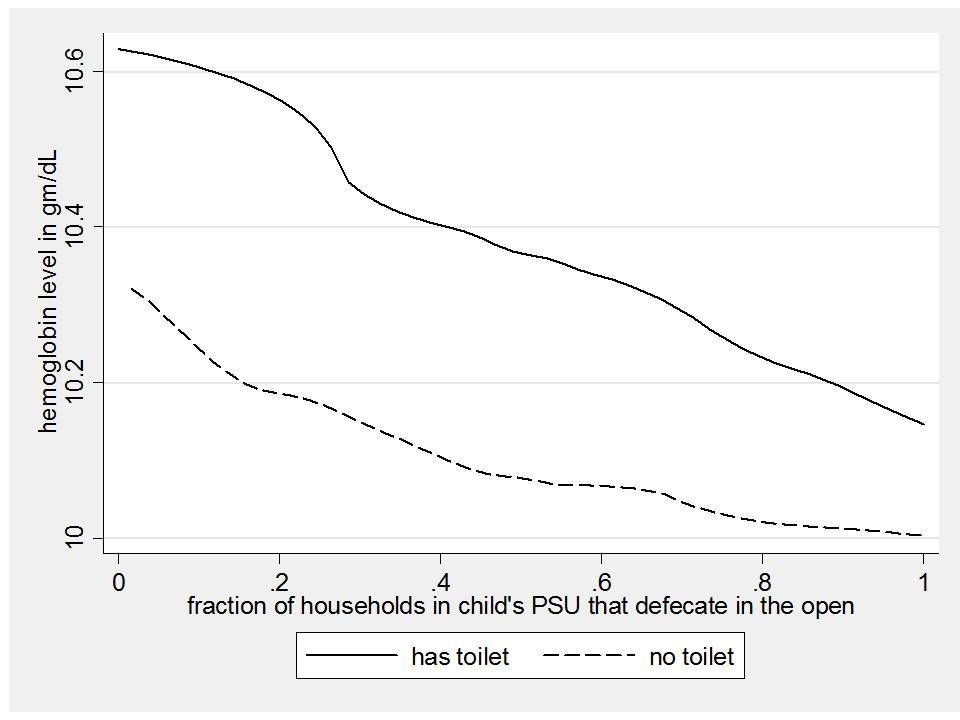a new working paper on sanitation and anemia
— Blog Post — 1 min read
I just posted a preliminary draft of a new working paper that suggests that open defecation is an important cause of anemia, a disease which affects large numbers of children in India, causing cognitive and developmental delays. In case you are interested, here is the abstract:
Globally, almost half of children have hemoglobin levels below the threshold for anemia; rates of anemia are highest in South Asia and sub-Saharan Africa. Anemia impairs cognitive ability, and so also has implications for educational attainment and adult productivity. This paper uses three complementary empirical strategies to provide the first population-based evidence for the hypothesis that open defecation, a behavior with important externalities, contributes to a disease environment which causes hemoglobin deficiency. First, it finds a strong cross-country gradient between children's hemoglobin and open defecation. Second, it uses individual data from India and Nepal to show a robust relationship between hemoglobin and community open defecation. Third, it uses fixed effects analysis to show that improvement in open defecation in Nepal between 2006 and 2011 predicts improvement in hemoglobin. This study suggests that research and policy on anemia should focus more on sanitation, particularly in regions with high open defecation rates.
And a graph to whet your appetite...it shows the open defecation-hemoglobin gradient in India, split up by kids living in households that have a latrine, and those that do not. Further evidence of negative externalities of open defecation...
